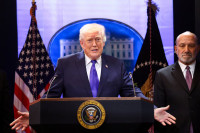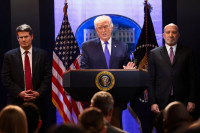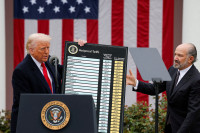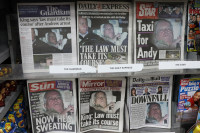World
Auditors get tougher guidelines on judging firms’ environmental claims
The move by the International Auditing and Assurance Standards Board (IAASB) and the International Ethics Standards Board for Accountants (IESBA) comes as more companies are pushed to disclose data as part of efforts to fight climate change.
Reuters
International auditors have been given new guidance on what to check when assessing firms’ environmental, social and governance claims - and how - as part of efforts to increase rigour and consistency, the chair of the industry’s global ethics watchdog told Reuters.
The move by the International Auditing and Assurance Standards Board (IAASB) and the International Ethics Standards Board for Accountants (IESBA) comes as more companies are pushed to disclose data as part of efforts to fight climate change.
While global reporting standards and separate ones for the European Union have been released, the guidelines and rules for auditors are crucial to help ensure trust in the information, IESBA Chair Gabriela Figueiredo Dias said.
“One thing is to know what you must do, and another thing is to know how to behave and how to approach many dilemmas, decisions and judgments that you need to make,” Dias said.
Examples of that could be how to handle pressure from the client to cherry-pick information that makes them look better, and how to ensure information is presented so that it does not mislead: so-called “greenwashing”.
The new standards are contained in the IAASB’s International Standard on Sustainability Assurance 5000, and IESBA’s International Ethics Standards for Sustainability Assurance.
Around 130 countries have reflected IESBA’s guidelines for financial reporting in their rules and Dias said she expected they would do the same with the sustainability guidelines.
The EU is currently debating the scope of a suite of sustainability rules, including its Corporate Sustainability Reporting Directive, amid concern that extensive reporting requirements are damaging EU competitiveness.
In the United States, meanwhile, similar rules have been challenged and are likely to continue to be under the government of Donald Trump.
“It is our conviction that in a world with less detailed rules ... ethics standards matter more as there is more space for judgment, more space for decision-making,” Dias said.
Despite the political backdrop, 34 of the world’s biggest auditors are expected to adopt the guidance, Dias said.
“This creates a significant global framework and a set of expected behaviours which have some kinds of enforcement,” although to what degree will differ depending on the jurisdiction, Dias said.




 9.34°C Kathmandu
9.34°C Kathmandu














